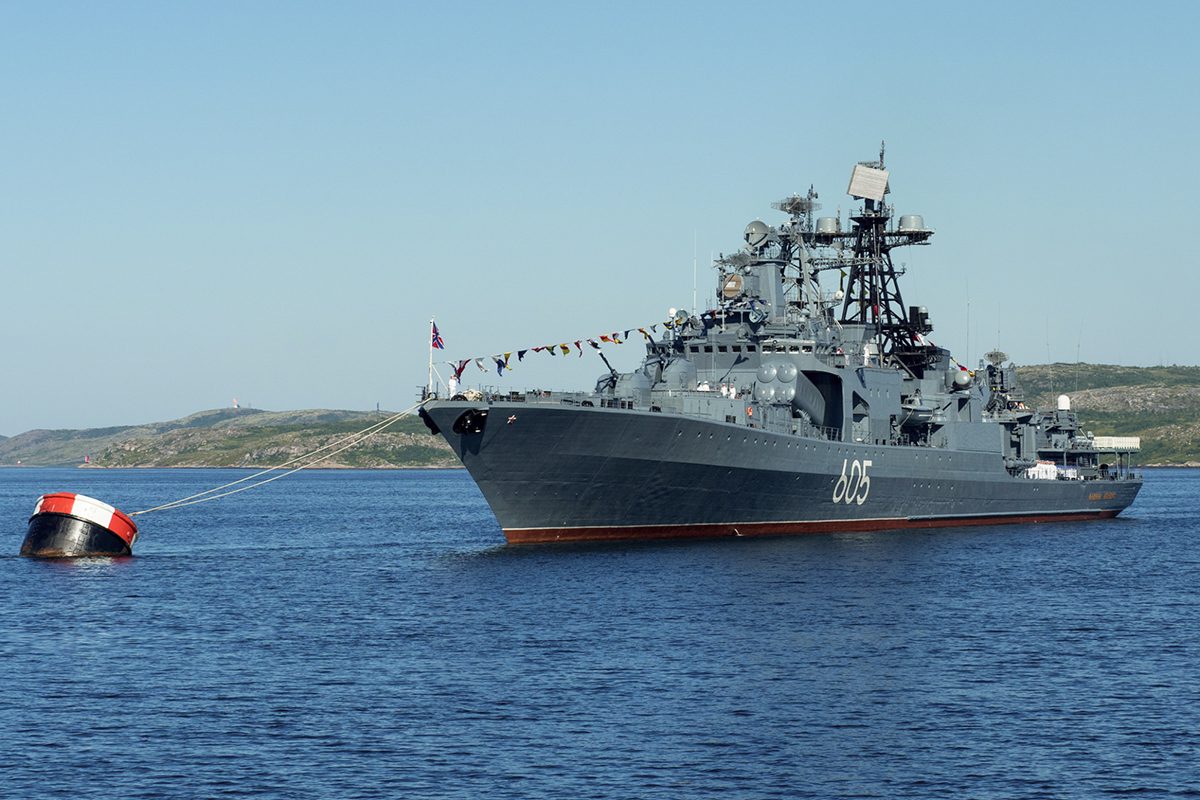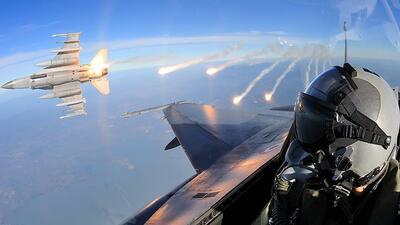Актуелни случувања во светот, со осврти од геополитички аспект
- Креатор на темата Vanlok
- Време на започнување
Vanlok
deus ex machina
- Член од
- 30 мај 2009
- Мислења
- 27.129
- Поени од реакции
- 36.205

Report: Russian Warship Fires Warning Shots at Norwegian Fishing Vessel During Naval Exercise
Russian warship fires warning shots at Norwegian fishing boat during joint naval exercise in Norway's exclusive economic zone.
 gcaptain.com
gcaptain.com
Vanlok
deus ex machina
- Член од
- 30 мај 2009
- Мислења
- 27.129
- Поени од реакции
- 36.205

NATO in Romania: The Black Sea Flank
This article was reposted with permission from Eagle Eye Explore. DD Geopolitics is a reader-supported publication.
Vanlok
deus ex machina
- Член од
- 30 мај 2009
- Мислења
- 27.129
- Поени од реакции
- 36.205
Some interesting thoughts on the evolution of NATO in this article written by
@ChrisDMott
, who's a Washington Fellow at the Institute for Peace & Diplomacy and a former researcher at the U.S. Department of State.
The author argues that NATO "has shed its defensive basis and been reconceived as an organization whose primary directive is to expand America’s sphere of influence globally", with an "intentional strategic shift toward [becoming] the global military arm for the U.S.-led liberal international order."
He says that it is "as if the 'North Atlantic' part of NATO has been entirely replaced with vague classifications like the 'free world'... there appears to exist a set of chosen nations occupying hollowed ground whose sacred light must be protected from their nebulous barbarian other."
To effect this shift, he writes that NATO "instrumentalizes the nationalism of smaller states to justify intervention abroad". As he puts it, "the national self-determination of smaller states outside NATO is utilized to guilt and unify the alliance behind the U.S. foreign policy establishment’s priorities [...] NATO’s new raison d’etre has thus become the global defense of smaller faultline nation-states — which are not party to the alliance."
Examples of this evolution beyond NATO members' defense include Afghanistan, Libya and, more recently, Ukraine which Mott describes as "NATO’s attempts to turn a local European war [...] into a civilizational and existential war for the world, projecting Western interests as global interests and downplaying realpolitik for morality".
It also includes NATO's new fixation on the “Indo-Pacific” which Mott says proves that "NATO that no longer sees collective European defense as its main objective: its new aim is, instead, the maintenance and expansion of U.S. hegemony through the liberal international order in such a way that the ideological and geopolitical ends of NATO and liberal internationalism become functionally indistinguishable from each other."
Mott also notes a growing authoritarian streak within NATO towards "member states that attempt to assert their own interests", especially if these interests "contradict NATO’s institutional agenda". He gives the example of Hungary and Turkey which "are regularly singled out for outsize criticism, because they try to pursue a flexible, multi-aligned, and interest-based policy toward the current Ukraine War."
The trouble with all this, as Mott so rightly writes, is that "such an expansive global posture and attitude not only decouples an alliance network from its original basis in regional defense but also decenters its real security and strategic imperatives in favor of moralism and ideological conformity. Through its globalism, the alliance substitutes a limitless, abstract, and Manichaean justification for self-perpetuation. Arrangements of these types view all conflicts as existential and zero-sum rather than local in origin and context-dependent."
Moreover, Mott argues that these "globalizing and idealistic objectives adopted by NATO" are "antithetical with the concept of national interest" for the US themselves, because it's pure ideology. This leaves countries that are not wearing the "straitjacket" of the West's "Manichaean mentality" at "an immense advantage in crafting a more efficacious grand strategy", because they're more pragmatic, flexible and altogether adapted to the realities of multipolarity than their Atlanticist counterparts.
All in all, Mott predicts that "so long as Washington regards U.S. primacy as non-negotiable and the North Atlantic nations continue to valorize Western values [...] over their national interest, they risk being outcasts in the new global order that is being shaped".
He says that the West needs to come to terms with the fact that "unipolarity is over" and that we're witnessing "the birth of what Ambassador Chas Freeman has called a “multi-nodal” system — a more diffused multipolarity with multiple economic centers and regional poles that no single power can dream to dominate", adding that "in such a new environment, the quest for global hegemony is especially ill-advised and could spell the downfall of the great power that attempts it." He also emphasized that "it is vital not to enter new cul de sacs — such as by falsely emphasizing the return of bipolarity and promoting old tropes as a ‘New Cold War’."
Автоматски споено мислење:
Why was the formation of NATO sought by Britain as the solution to its defense dilemma?
This article aims to analyze how the North Atlantic Treaty Organization allowed the UK, in the early stage of the Cold War, to maintain some global power. In many cases, the country acted as a bridge between Western European and American interests. Aware of the decline of the Empire and its lack...
Vanlok
deus ex machina
- Член од
- 30 мај 2009
- Мислења
- 27.129
- Поени од реакции
- 36.205
Turkey Bombs US Proxies In Northeast Syria Following Ankara Terror Attack

Jets pummel sites in northern Iraq & Syria after PKK believed behind attack on Turkish Aerospace Industries HQ...

Jets pummel sites in northern Iraq & Syria after PKK believed behind attack on Turkish Aerospace Industries HQ...
